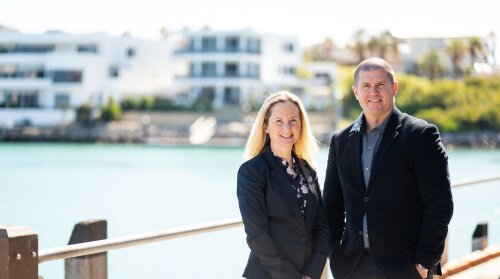Best Admiralty & Maritime Lawyers in Australia
Share your needs with us, get contacted by law firms.
Free. Takes 2 min.
Or refine your search by selecting a city:
List of the best lawyers in Australia
About Admiralty & Maritime Law in Australia
Admiralty and Maritime Law in Australia is a specialized area of law that deals with issues related to navigation, shipping, and maritime commerce. It encompasses both domestic and international laws that regulate activities on Australian waters and beyond. The legal framework is primarily derived from the Admiralty Act 1988 and associated regulations, ensuring the safe and efficient use of the seas, addressing disputes, and managing marine environmental protection.
Why You May Need a Lawyer
There are various situations where you may require legal help in Admiralty & Maritime matters. Common scenarios include maritime collisions, salvage operations, ship arrest and seizure, personal injury claims under the Jones Act, cargo disputes, maritime insurance claims, and issues related to marine pollution. Additionally, international shipping contracts, piracy, and crew rights are also significant areas where legal guidance is crucial.
Local Laws Overview
The local laws governing Admiralty & Maritime in Australia are designed to regulate a broad spectrum of activities on water. Key legal areas include:
- Admiralty Jurisdiction: Covers the powers of Australian courts to hear maritime cases.
- Salvage and Wrecks: Rules regarding the rights and obligations when rescuing vessels or cargo.
- Pollution and Environmental Protection: Laws to prevent and respond to marine pollution, including international agreements like MARPOL.
- Shipping Registration: Policies concerning the registration and regulation of Australian ships.
- Seafarers' Rights: Legislation governing the working conditions and rights of seafarers.
Frequently Asked Questions
What is Admiralty Law?
Admiralty Law, also known as Maritime Law, governs legal issues related to maritime activities, including shipping, navigation, waters, and related areas.
Who can practice Admiralty Law?
Lawyers who specialize in maritime and admiralty law, often with specific accreditation or experience in this area, can practice in this field.
What kinds of cases fall under Admiralty Jurisdiction?
Cases related to maritime contracts, maritime torts, salvage operations, ship mortgages, and injury claims occurring at sea fall under Admiralty Jurisdiction.
What is a ship arrest?
A ship arrest is a legal process where a ship is detained by court order to secure a maritime claim against it.
How do international maritime laws affect Australia?
Australia is a signatory to several international conventions, and these are implemented through domestic laws which impact maritime operations.
What rights do seafarers have under Australian law?
Seafarers are protected by laws ensuring safe working conditions, fair wages, rest periods, and other labor rights under the Fair Work Act 2009.
How can I resolve a maritime contract dispute?
Disputes may be resolved through negotiation, arbitration, or litigation, with a maritime lawyer helping navigate these processes.
What is covered under marine insurance?
Marine insurance typically covers loss or damage to ships and cargo, liabilities to third parties, and loss of freight revenue.
Can I sue for personal injuries sustained at sea?
Yes, personal injury claims may be filed under provisions specific to maritime injuries, with potential claims governed by the Jones Act and local laws.
What are the consequences of marine pollution in Australia?
Marine pollution breaches can result in substantial fines, cleanup costs, and longer-term sanctions under environmental protection laws.
Additional Resources
For more information on Admiralty & Maritime Law in Australia, the following resources may be helpful:
- Australian Maritime Safety Authority (AMSA): Regulatory authority for maritime safety and environmental protection.
- Federal Court of Australia: Court with jurisdiction over maritime cases.
- Department of Infrastructure, Transport, Cities, and Regional Development: Provides policy oversight of the maritime sector.
- Local maritime law firms: Specialize in legal advice and representation in maritime matters.
Next Steps
If you need legal assistance in Admiralty & Maritime, consider the following steps:
- Identify any specific legal issue or dispute you are facing.
- Gather all relevant documents and evidence related to your case.
- Consult with a lawyer who specializes in Admiralty & Maritime Law for an expert evaluation.
- Consider mediation or arbitration as a potential resolution mechanism.
- Prepare for possible litigation by working closely with your legal advisor.
Lawzana helps you find the best lawyers and law firms in Australia through a curated and pre-screened list of qualified legal professionals. Our platform offers rankings and detailed profiles of attorneys and law firms, allowing you to compare based on practice areas, including Admiralty & Maritime, experience, and client feedback.
Each profile includes a description of the firm's areas of practice, client reviews, team members and partners, year of establishment, spoken languages, office locations, contact information, social media presence, and any published articles or resources. Most firms on our platform speak English and are experienced in both local and international legal matters.
Get a quote from top-rated law firms in Australia — quickly, securely, and without unnecessary hassle.
Disclaimer:
The information provided on this page is for general informational purposes only and does not constitute legal advice. While we strive to ensure the accuracy and relevance of the content, legal information may change over time, and interpretations of the law can vary. You should always consult with a qualified legal professional for advice specific to your situation.
We disclaim all liability for actions taken or not taken based on the content of this page. If you believe any information is incorrect or outdated, please contact us, and we will review and update it where appropriate.
Browse admiralty & maritime law firms by city in Australia
Refine your search by selecting a city.













